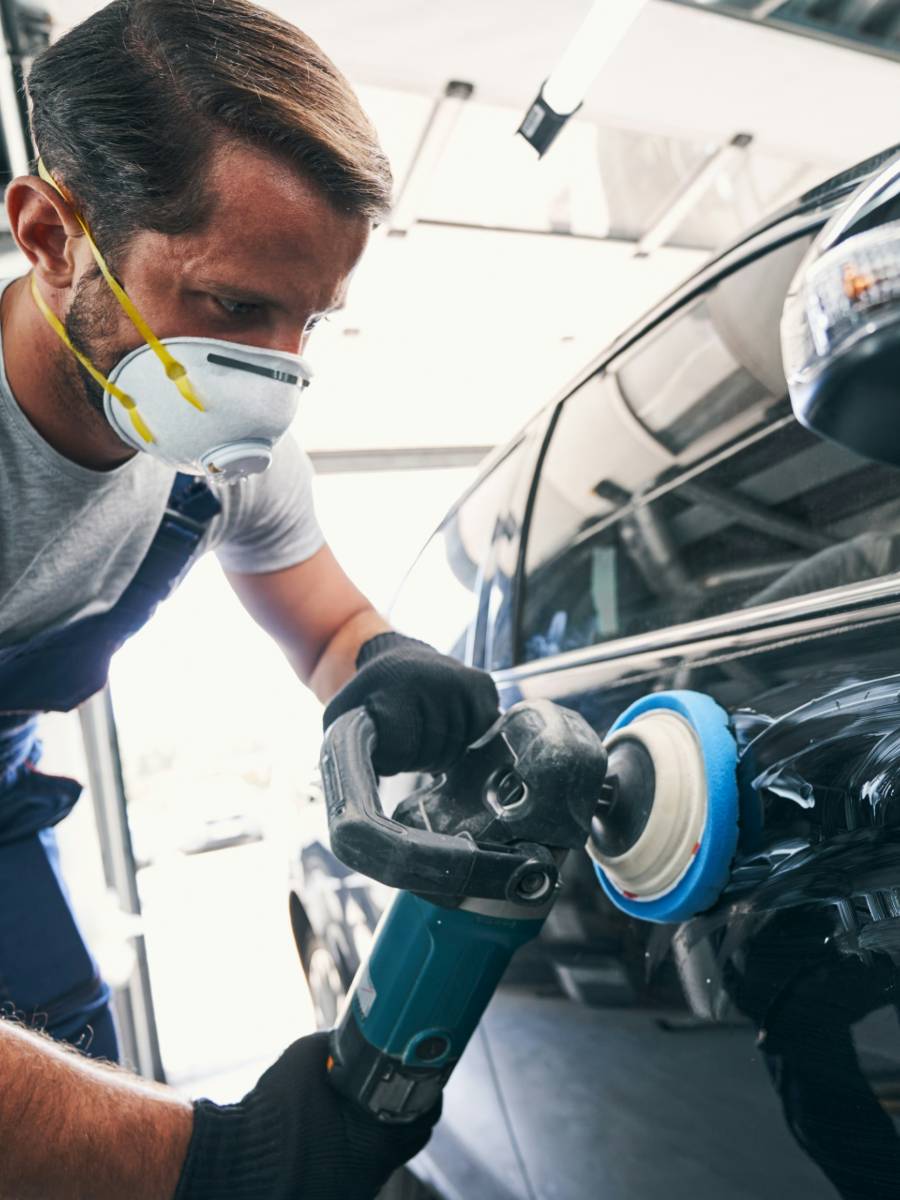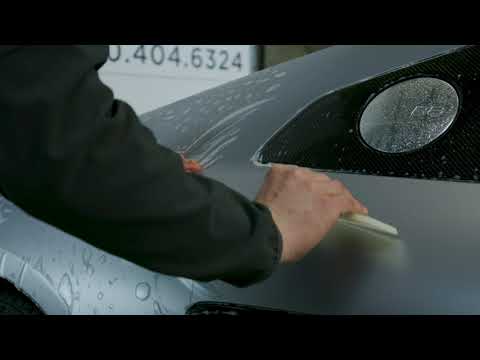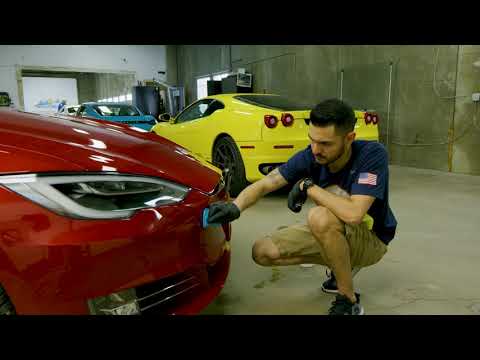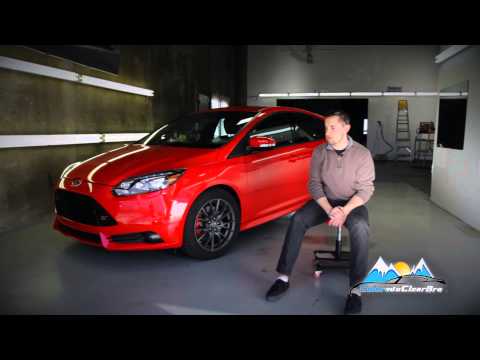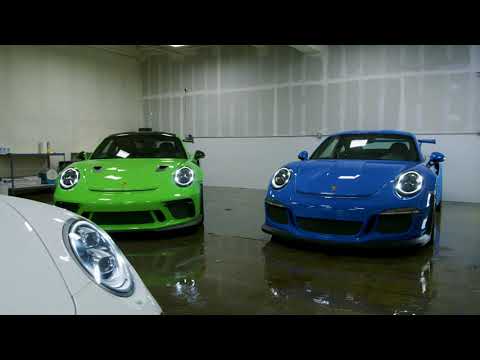Introduction DIY vs. Professional Ceramic Coating for Cars
Ceramic coating in Denver has become a game-changer when protecting your car's paint and maintaining its glossy finish. This revolutionary product creates a protective layer that shields your vehicle from environmental damage, dirt, and minor scratches.
However, there’s a big decision: should you go the DIY route or leave it to the professionals? In this article, we’ll explore every facet of DIY and professional ceramic coating to help you make an informed decision. Read our Ultimate Guide to the Best DIY Ceramic Coating for Cars to learn more.
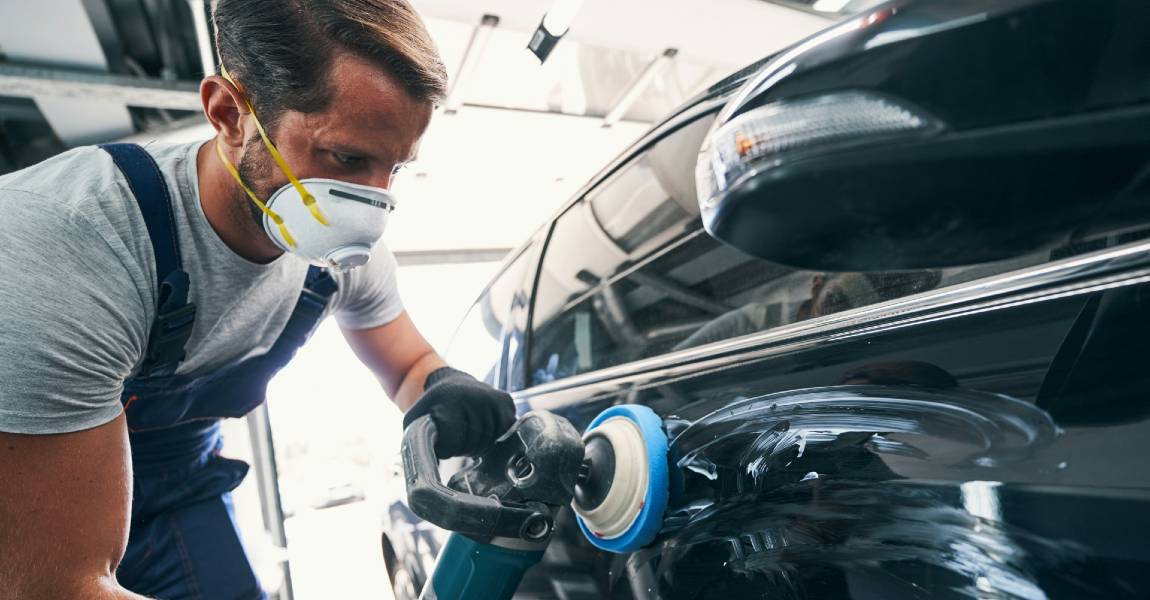
Table Of Contents
- Understanding Ceramic Coating
- Benefits of Ceramic Coating
- Types of Ceramic Coating Available
- DIY Ceramic Coating
- Steps for Applying DIY Ceramic Coating
- Professional Ceramic Coating
- Advantages of Professional Ceramic Coating
- Disadvantages of Professional Ceramic Coating
- Comparison: DIY vs. Professional Ceramic Coating
- Key Factors to Consider Before Choosing
- Essential Tools for DIY Applications
- Tips for Achieving Professional-Level Results
- Exploring Professional Services
- Maintenance of Ceramic Coated Cars
- Real-Life Examples
- Cost Comparison Breakdown
- Environmental and Safety Considerations
- FAQs
- Myths About Ceramic Coating Debunked
- Conclusion
- Contact Us
Understanding Ceramic Coating
Definition and Composition
Ceramic coating is a liquid polymer applied to the exterior of a vehicle, bonding chemically with the factory paint. It forms a semi-permanent protective layer that repels water, dirt, and UV rays. Composed of silica or titanium dioxide, ceramic coatings provide hydrophobic properties and enhance gloss.
Benefits of Ceramic Coating
- Enhanced Protection: Shields against UV damage, oxidation, and minor scratches.
- Long-lasting Shine: Maintains the vehicle’s glossy appearance for years.
- Hydrophobic Properties: Water beads off effortlessly, making cleaning easier.
- Cost-Effective Maintenance: Reduces the need for frequent waxing and polishing.
Types of Ceramic Coating Available
- Consumer-Grade Coatings: Easier to apply, with moderate durability.
- Professional-Grade Coatings: Require skilled application but offer superior longevity and protection.
DIY Ceramic Coating
What is DIY Ceramic Coating?
DIY ceramic coating refers to consumer-grade products designed for car owners to apply themselves. These products are available online or in stores, making them accessible and affordable.
Advantages of DIY Ceramic Coating
- Cost-Effective: Typically costs a fraction of professional services.
- Convenient: You can apply it at your own pace, in your garage.
- Learning Experience: A rewarding process for car enthusiasts who enjoy hands-on work.
Disadvantages of DIY Ceramic Coating
- Skill-Dependent: Inexperience can lead to uneven application or streaks.
- Shorter Lifespan: DIY coatings may not last as long as professional-grade ones.
- Limited Warranty: Most DIY products don’t offer warranties like professional services.
Popular DIY Ceramic Coating Products
- Turtle Wax Hybrid Solutions Ceramic Spray
- Chemical Guys HydroSlick Coating
- Gtechniq Crystal Serum Light
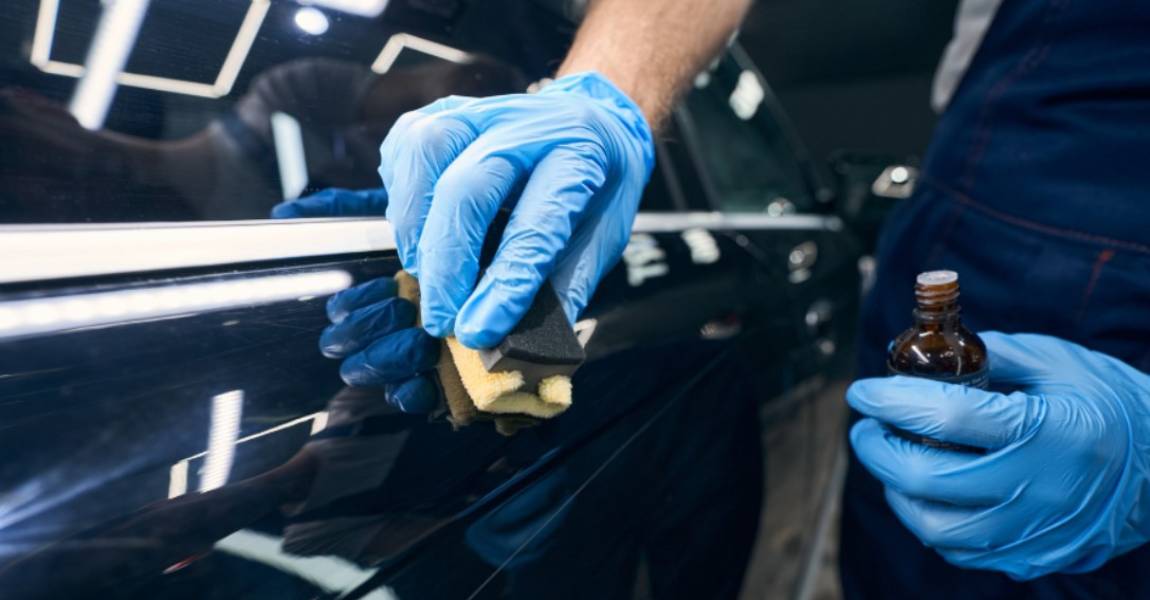
Steps for Applying DIY Ceramic Coating
Step-by-Step Guide to DIY Ceramic Coating
Step 1: Preparing the Car
- Thorough Wash: Begin with a two-bucket wash method to minimize scratches.
- Clay Bar Treatment: Remove embedded contaminants for a smooth surface.
- Paint Correction: Use a polisher to eliminate swirls and scratches.
- IPA Wipe-Down: Ensure all residues are removed before application.
Step 2: Applying the Ceramic Coating
- Apply a few drops of the coating onto an applicator pad.
- Work in small sections (2x2 feet) to ensure thorough coverage.
- Spread the product evenly, overlapping strokes to avoid streaks.
Step 3: Buffing and Curing
- After a few minutes (refer to the product instructions), use a microfiber towel to buff off excess coating.
- Allow the coating to cure for the recommended time, avoiding water contact.
Common Mistakes in DIY Applications
- Applying too much product, leading to streaking.
- Ignoring preparation steps like polishing or decontamination.
- Rushing the curing process, compromising durability.
Time and Cost Involved in DIY Ceramic Coating
- Time: Typically requires 4–8 hours, depending on preparation and application.
- Cost: Ranges between $50 and $150 for a standard DIY kit.
Professional Ceramic Coating
What is Professional Ceramic Coating?
Professional ceramic coating involves skilled technicians applying advanced-grade products. These coatings are designed to provide maximum durability and protection.
Advantages of Professional Ceramic Coating
- Flawless Finish: Achieved by experts with years of experience.
- Durability: Lasts 2–5 years, or even longer with high-end products.
- Warranty Coverage: Many services include warranties for peace of mind.
Disadvantages of Professional Ceramic Coating
- High Cost: Can range from $500 to $2,000 or more, depending on the vehicle.
- Time-Consuming: Requires leaving your car at the shop for 1–3 days.
Types of Professional Services Available
- Single-Layer Coating: Basic protection, ideal for budget-conscious customers.
- Multi-Layer Coating: Offers enhanced durability and gloss.
- Graphene Coatings: Advanced protection with superior heat resistance.
The Process: What Happens During Professional Application
- Assessment: Inspecting the vehicle for scratches or imperfections.
- Preparation: Thorough cleaning, decontamination, and paint correction.
- Application: Applying the coating layer by layer with precision.
- Curing: Using infrared lamps to accelerate curing for optimal bonding.
Time and Cost of Professional Ceramic Coating
- Time: Typically takes 1–3 days.
- Cost: Ranges from $500 to $2,000+ based on the service package.
Comparison: DIY vs. Professional Ceramic Coating
| Aspect | DIY Ceramic Coating | Professional Ceramic Coating |
|---|---|---|
| Durability | 1–2 years | 2–5+ years |
| Cost | $50–$150 | $500–$2,000+ |
| Quality of Finish | Skill-dependent | Flawless and consistent |
| Time Commitment | 4–8 hours | 1–3 days |
| Maintenance | Moderate | Minimal |
| Risks | High (user error possible) | Low (handled by professionals) |
Key Factors to Consider Before Choosing
- Budget: Can you afford professional services, or is DIY more feasible?
- Experience: Are you confident in your ability to apply the coating?
- Vehicle Usage: Is your car exposed to harsh conditions requiring professional-grade durability?
- Tools and Resources: Do you have access to the necessary tools for DIY?
Tools and Materials for Ceramic Coating
Essential Tools for DIY Applications
- Microfiber Towels: For buffing and ensuring a streak-free finish.
- Applicator Pads: Used to apply the ceramic coating evenly.
- Clay Bar Kit: Removes contaminants from the paint surface.
- Car Polisher: For correcting paint imperfections and enhancing smoothness.
- Detailing Brushes: Helps clean tight spaces during preparation.
- Isopropyl Alcohol (IPA): For wiping down surfaces before application.
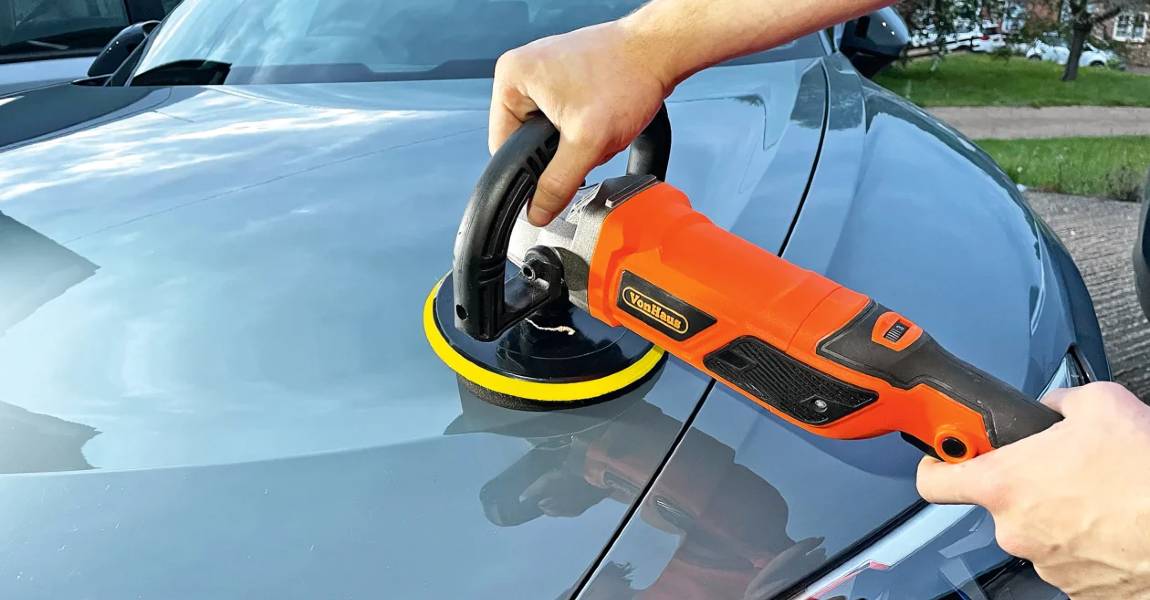
Professional-Grade Equipment Overview
- High-Speed Rotary Polisher: For deep paint correction.
- Paint Thickness Gauge: Ensures safe polishing without damaging the clear coat.
- Infrared Curing Lamps: Speeds up the curing process for the coating.
- Professional-Grade Coating Products: Offers higher silica content for maximum protection.
Product Recommendations for DIY Enthusiasts
- Meguiar's Hybrid Ceramic Wax: Easy to use and provides a hydrophobic effect.
- CarPro CQuartz Kit: Durable and beginner-friendly.
- Adam’s Advanced Graphene Ceramic Coating: Known for its superior heat resistance and longevity.
Tips for Achieving Professional-Level Results
- Work in a well-lit and ventilated area.
- Avoid applying coating in direct sunlight or extreme temperatures.
- Use quality tools and follow manufacturer guidelines closely.
Exploring Professional Services
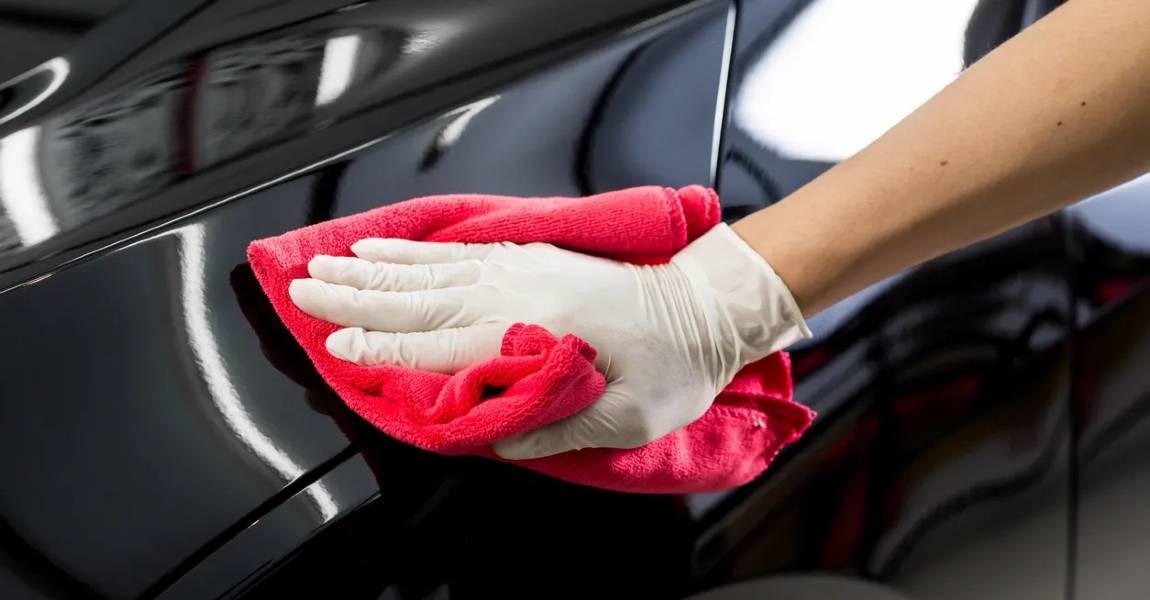
Choosing a Reliable Professional Detailer
- Check Reviews and Testimonials: Look for businesses with consistent positive feedback.
- Certifications: Ensure the detailer is certified to apply professional-grade ceramic coatings.
- Portfolio: Review before-and-after images of their work.
Questions to Ask Your Ceramic Coating Specialist
- What type of coating products do you use?
- Do you offer a warranty, and what does it cover?
- How long does the application process take?
- What maintenance is required after application?
Understanding Warranty Options
Professional services often include warranties ranging from 1 to 5 years. These warranties typically cover coating durability and protection against environmental damage, offering peace of mind.
Maintenance of Ceramic Coated Cars
General Cleaning Tips
- Use pH-neutral car shampoos to preserve the coating.
- Avoid automatic car washes with harsh brushes.
- Dry the vehicle with a microfiber towel to prevent water spots.
Do’s and Don’ts for Maintaining the Coating
- Do: Regularly inspect the coating for contamination or damage.
- Do: Apply a ceramic booster spray every few months for added protection.
- Don’t: Use abrasive polishes or waxes on the coating.
- Don’t: Expose the car to harsh chemicals like degreasers.
How Long Does Ceramic Coating Last?
- DIY Coatings: Typically last 1–2 years with proper maintenance.
- Professional Coatings: Can last 3–5+ years, depending on the product and care.
Real-Life Examples
Case Study: DIY Ceramic Coating Results
A car enthusiast, John applied a consumer-grade ceramic coating to his SUV. Despite his limited experience, he achieved a decent finish. However, the coating began to degrade after 18 months, requiring reapplication.
Case Study: Professional Ceramic Coating Outcomes
Sarah opted for professional ceramic coating for her luxury sedan. The result was a flawless, long-lasting finish that maintained its hydrophobic properties for over four years.
Testimonials from Car Owners
- “I saved money with DIY, but the results weren’t perfect. Next time, I’ll hire a pro.” – Mark D.
- “Professional ceramic coating transformed my car. It’s worth every penny!” – Emma L.
Cost Comparison Breakdown
DIY Ceramic Coating Costs
- Product Kit: $50–$150
- Tools (if not owned): $100–$200
- Time Investment: 4–8 hours
Professional Ceramic Coating Costs
- Basic Service: $500–$1,000
- Premium Service: $1,000–$2,000+
- Time Investment: 1–3 days
Long-Term Cost Benefits Analysis
While DIY may save money upfront, professional ceramic coatings often provide better long-term value due to their durability and lower maintenance needs.
Environmental and Safety Considerations
Environmental Impact of Ceramic Coating Products
- Many products are VOC-compliant, but some may release harmful chemicals.
- Always dispose of applicators and containers responsibly.
Safety Measures for DIY Application
- Wear gloves and a mask to avoid skin or respiratory irritation.
- Work in a well-ventilated area to minimize exposure to fumes.
FAQs
Common Concerns About Ceramic Coating
Will ceramic coating protect against rock chips?
No, ceramic coating is not a substitute for paint protection film.
Is ceramic coating worth it for older cars?
Yes, especially if the paint is well-maintained or restored.
Myths About Ceramic Coating Debunked
- Myth: Ceramic coating makes a car scratch-proof.
- Fact: It resists minor scratches but won’t prevent deep gouges.
Ceramic coating is a popular choice among car enthusiasts and professionals alike, but there are several misconceptions surrounding its capabilities and benefits. Let’s address and debunk some of the most common myths to set the record straight.
Myth 1: Ceramic Coating Makes Your Car Scratch-Proof
Reality:
Ceramic coatings provide excellent resistance to minor scratches and swirl marks, but they do not make your car completely scratch-proof. The coating acts as a sacrificial layer that absorbs light abrasions, protecting the underlying paint. However, significant impacts, such as rock chips or deep scratches from sharp objects, will still penetrate the coating and damage the paint. For complete protection against severe damage, combining ceramic coating with a paint protection film (PPF) is recommended.
Myth 2: Ceramic Coating is a Permanent Solution
Reality:
While ceramic coatings are long-lasting compared to traditional wax or sealants, they are not permanent. Most professional-grade coatings last between 2–5 years, depending on the product, application quality, and maintenance. Environmental factors like exposure to UV rays, harsh chemicals, and improper care can shorten its lifespan. Regular maintenance, such as washing with pH-neutral shampoos and avoiding abrasive cleaning methods, is essential to maximize durability.
Myth 3: Ceramic Coating Eliminates the Need for Washing
Reality:
Ceramic coating significantly reduces the effort needed to clean your car but does not eliminate the need for washing. The hydrophobic properties of the coating cause water, dirt, and grime to bead up and slide off more easily. However, over time, contaminants like dust, pollen, and road grime can still accumulate on the surface. Regular washing is necessary to keep the coating performing at its best and to maintain the car’s appearance.
Myth 4: Ceramic Coating Repairs Existing Paint Damage
Reality:
Ceramic coating does not fix existing imperfections such as scratches, swirl marks, or oxidation. Instead, it locks in the current condition of the paint. This is why proper surface preparation, including washing, claying, and paint correction, is crucial before applying a ceramic coating. Skipping these steps can result in a less-than-perfect finish, as the coating will magnify flaws rather than hide them.
Myth 5: DIY Ceramic Coatings are Just as Good as Professional Ones
Reality:
While DIY ceramic coatings have improved over the years and offer decent protection, they are generally less durable and effective than professional-grade products. Professional coatings typically have a higher silica content, require advanced application techniques, and provide enhanced durability and hydrophobic properties. Additionally, professional detailers perform extensive prep work and use specialized equipment, ensuring a flawless application that DIY methods often can’t replicate.
Myth 6: Ceramic Coating Prevents Rock Chips and Dents
Reality:
Ceramic coating provides a hard, protective layer that resists minor abrasions but is not thick enough to absorb the impact of rock chips or dents. These types of damage require a more robust solution, such as paint protection film (PPF), which is explicitly designed to absorb and disperse the energy from impacts.
Myth 7: Once Applied, Ceramic Coating Doesn’t Require Maintenance
Reality:
Even though ceramic coatings make maintenance easier, they still require care to perform optimally. Routine washing, using ceramic-friendly cleaning products, and applying booster sprays can prolong their life and maintain their shine. Neglecting maintenance can lead to the accumulation of contaminants that degrade the coating’s effectiveness over time.
Myth 8: Ceramic Coating Creates an Unbeatable Shine Without Effort
Reality:
While ceramic coating enhances gloss and depth, it’s not a magical solution that creates showroom shine without proper prep work and maintenance. The level of shine depends on the condition of the underlying paint. Cars with properly corrected and polished paint will see the best results from a ceramic coating. Regular cleaning and touch-ups are needed to maintain the high-gloss finish.
Myth 9: All Ceramic Coatings Are the Same
Reality:
Not all ceramic coatings are created equal. Differences in formula, durability, and performance vary between brands and product lines. Consumer-grade coatings are typically easier to apply but less durable, while professional-grade coatings require expertise for application and offer superior protection and longevity. Understanding these differences can help you choose the best product for your needs.
Conclusion
Ceramic coating is an excellent investment for car owners looking to protect their vehicles and enhance their appearance. Whether you choose the DIY route for cost savings or opt for professional services for superior results depends on your budget, skills, and goals. If you’re meticulous and willing to learn, DIY can be rewarding. However, professional ceramic coating remains the gold standard for unparalleled quality and durability.
Recommendations:
- Go DIY if you’re on a tight budget and enjoy hands-on projects.
- Choose professional services if you value flawless results and long-lasting protection.
Contact Us
At Colorado Clear Bra, we help protect and enhance your vehicle with premium paint protection, ceramic coatings, and clear bra installations. If you have questions, need a quote, or want to schedule service, don’t hesitate to contact us at 720-404-6324.






